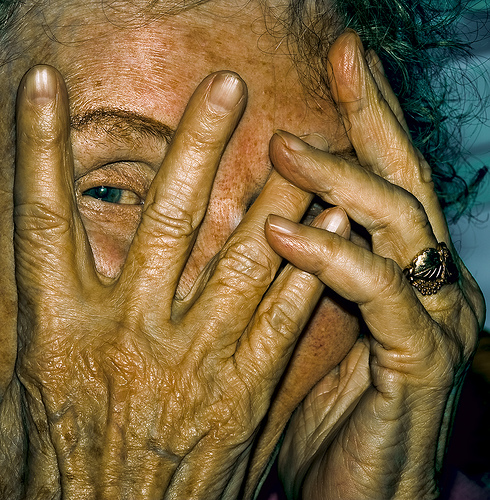One of the biggest mistakes I see my students make is trading a good tactical position for a position that offers better visibility instead. It’s nice to be able to see what’s going on, but it’s seldom a good idea to trade a position of relative safety for one that gives you a better view.
To better illustrate this problem, watch this video of cops responding to terrorist vehicle run-down attack in Canada a few years ago.
The video perfectly illuminates one of the most common mistakes I see in scenario training. I see cops on the street doing it every day as well.
Despite some commentators’ opinions, I don’t believe this incident was any superior display of police de-escalation techniques. I think the cop very quickly recognized that the “gun” the suspect was holding was fake. If he had any doubts whatsoever, he would have likely shot the terrorist immediately.
What’s interesting to me is that even though he likely knows the gun is fake, he tries to stay behind cover of the police car for about the first 30 seconds of the confrontation. That makes good tactical sense. The bad guy might have a hidden second weapon or he might have friends. There’s no point in leaving a position of cover if you don’t have to. But then look what happened around second :36. The officer begins to move away from the car and toward the suspect while giving verbal commands.
Why would he do this?
Having witnessed thousands of students in force on force training evolutions and hundreds of cops doing the same thing in hazardous situations on the street, I’ve come to the conclusion that during stressful situations there is an incredible urge to get a better view of what’s happening. I think the cop in the video is trying to get a better view of the suspect. I see the same thing happening nearly constantly with my students and my former co-workers.
In very stressful incidents, it is common for our bodies to prioritize information from sensory inputs. The body recognizes danger and tends to “blunt” the input processing from all senses except the one that is most important to immediate survival. One of the most common phenomena that people in shootings report is called “auditory exclusion“. They don’t hear what is being said because the body is concentrating all its resources on processing inputs from the more important sense of sight.
I see it over and over again. Students and co-workers leave good positions of cover so that they can get a better view of what’s going on. Did the officer in the video above need to see anything more than what he was seeing? Clearly not. Seeing more wouldn’t help in this situation. Stay put and wait for your backup (or for the police if you aren’t a cop). There’s no need to see any more.
Recognize that in a dangerous situation, you will likely feel compelled to move to a position that gives you a better view of the unfolding scenario. Resist that urge to try to see more.
The best way to prevent this from happening is to run through a mental checklist after any life-threatening confrontation. During any stressful tactical situation you should be asking the following questions:
1) Can I safely escape without engaging? (Not likely applicable in an on-duty police scenario)
2) Do I need to shoot this guy? If not, what level of force is most appropriate?
3) Does he have any friends?
4) Can I move to a better position?
That fourth question is the one that comes into play here. You jujitsu players will understand. You constantly work to achieve a better position versus your opponent. It’s the same in gunfighting. Once the initial problem is solved, seek a better position.
Just remember this dictum: “Better position, NOT better view.”










